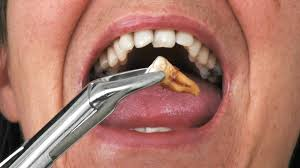How to Prepare for a Tooth Extraction: Expert Tips for a Smooth Procedure
Tooth extraction is a common dental procedure that many people undergo at some point in their lives. Whether you need to have a wisdom tooth removed, a severely decayed tooth extracted, or a damaged tooth replaced, preparing well for the procedure can make a significant difference in your experience and recovery. A well-planned approach ensures minimal discomfort and a smooth healing process. In this article, we will provide expert tips on how to prepare for a Tooth extraction cost so that you can approach your appointment with confidence and ease.
1. Understand the Procedure
Before your extraction, your dentist or oral surgeon will explain the procedure to you. There are two types of tooth extractions:
Simple Extraction: This is performed on visible teeth that can be easily removed with forceps under local anesthesia.
Surgical Extraction: If the tooth is impacted, broken, or not easily accessible, an incision may be made, and the tooth may be removed in sections. This is typically done under local anesthesia, sedation, or general anesthesia.
Understanding what to expect helps alleviate anxiety and allows you to prepare mentally for the process.
2. Share Your Medical History
Before scheduling the procedure, inform your dentist about your complete medical history. Certain conditions, such as diabetes, heart disease, high blood pressure, or immune disorders, may require special precautions. Additionally, let your dentist know about any medications you are taking, including blood thinners, as they can impact clotting and healing after the extraction.
If you have any allergies, especially to anesthesia or antibiotics, make sure to discuss them with your dentist beforehand.
3. Follow Pre-Procedure Instructions
Your dentist will provide you with specific instructions to follow before your appointment. These may include:
Fasting Before the Procedure: If you are receiving sedation or general anesthesia, you may be required to fast for several hours before the extraction.
Avoiding Certain Medications: Blood thinners like aspirin may need to be paused before the extraction, as advised by your dentist or doctor.
Wearing Comfortable Clothing: Loose, comfortable clothing is recommended, especially if sedation is used.
Arranging Transportation: If you are undergoing sedation, arrange for someone to drive you home after the procedure.
4. Maintain Good Oral Hygiene
Keeping your mouth clean before the extraction can reduce the risk of infection. Brush and floss your teeth as usual, but avoid over-scrubbing the area around the affected tooth. Your dentist may recommend rinsing with an antibacterial mouthwash before your appointment.
5. Stay Hydrated and Eat a Nutritious Meal
Unless instructed otherwise by your dentist, stay hydrated and eat a balanced meal before your procedure. However, if you are undergoing sedation, follow your dentist’s guidelines regarding food and drink restrictions.
6. Plan for Post-Extraction Care
Having a recovery plan in place will make the healing process easier and more comfortable. Stock up on the following essentials beforehand:
Soft foods such as yogurt, mashed potatoes, soups, and smoothies
Ice packs to help reduce swelling
Over-the-counter pain relievers (as recommended by your dentist)
Gauze pads to control bleeding
Additionally, make sure to rest adequately after the procedure and avoid strenuous activities for at least 24-48 hours.
7. Manage Anxiety and Stay Relaxed
It is normal to feel nervous about a tooth extraction, but stress can make the experience more challenging. Consider relaxation techniques such as:
Deep breathing exercises
Listening to calming music before the appointment
Speaking with your dentist about sedation options if you have dental anxiety
Many dental offices offer a comfortable and friendly environment to help ease your nerves, so don’t hesitate to communicate your concerns with your dentist.
8. Ask Questions and Clarify Doubts
If you have any concerns about the procedure, don’t hesitate to ask your dentist. Some questions you may want to ask include:
How long will the procedure take?
What type of anesthesia will be used?
What should I do if I experience excessive pain or swelling post-procedure?
How soon can I resume normal activities?
Being well-informed can help you feel more confident and prepared for the procedure.
9. Follow Up with Your Dentist
After your extraction, your dentist may schedule a follow-up appointment to monitor your healing progress. Be sure to attend this appointment and report any unusual symptoms such as excessive bleeding, persistent pain, or signs of infection.
Conclusion
Preparing for a Tooth extraction cost in Dubai doesn’t have to be stressful. By understanding the procedure, following pre-operative instructions, managing anxiety, and planning for post-procedure care, you can ensure a smooth and comfortable experience. Trust your dentist, take care of your oral health, and focus on a positive recovery process. A little preparation goes a long way in making your tooth extraction as easy and pain-free as possible.

Comments
Post a Comment